Design a program promoting the skills and thinking skills to improve reading comprehension
DOI:
https://doi.org/10.25057/21452776.294Keywords:
Thinking, reading comprehension, abilities and skills, learning, meta-cognitive abilitiesAbstract
The research on the Design of an Intervention Program in the field of the thinking abilities and skills for identifying and applying strategies to improve the reading comprehension of a group of students from a public school in the city of Santa Marta, intended as a first instance, to identify the reading comprehension level of students at 10th grade through the design and implementation of an adequate and ongoing development program focused on reading comprehension that improve the reading comprehension level of the school community: teachers and students; the results of this program were positive and conveyed to the reorientation and implementation of alternative pedagogic strategies in order to strengthen the teaching-learning process. The methodological approach is a semi-experimental study with a non-probability sample, and the Reading Comprehension Test was use as a measuring tool to identify the reading comprehension level; the research was conducted through 4 stages. The results evidenced the effects reflected due to the implementation of the intervention program that was designed and applied to a sample selected from the 10th grade level students of the Laura Vicuña School; there were a variation in the results already mentioned, specially to the texts selection in which the pre-test revealed to the following rates: informative text with 25%, narrative text with a 27%, argumentative text with a 24%, and the iconic text with a 24%; in the other hand, the post-test revealed the following rates: informative text with a 25%; narrative text with a 28%; argumentative text with a 24%, and the iconic text with a 23%.Therefore, it is possible to determine that there was an evidence percent change between the narrative and iconic texts; for the narrative text, there was an increasing factor of 1% and for the iconic one, there was a decreasing factor of 1%
Author Biography
María Fernanda Cabas Manjarrés, Universidad Cooperativa de Colombia, Sede Santa Marta
Psicóloga, Universidad Metropolitana, Colombia
Especialista en Docencia Universitaria, Universidad Cooperativa de Colombia, Sede Santa Marta
Especialista en Orientación y Asesoría Educativa, Familiar y Comunitaria, Universidad de Pamplona, España
Magister en Educación con énfasis en cognición, Universidad del Norte (Barranquilla), Colombia
Doctoranda en Ciencias de la Educación, Universidad del Magdalena, Colombia
Docente de Tiempo Completo, Universidad Cooperativa de Colombia – Sede Santa Marta
ORCID: https://orcid.org/0000-0003-0156-2446
Correo electrónico: maria.cabas@campusucc.edu.co
References
Bustamante, G., Jurado, F. (1998). Juguemos a interpretar. Evaluación de competencias en lectura y escritura. Bogotá: Plaza y Janes.
Brown, A., Ambruster, B., Baker, L. (1986). The role of metacognition in reading and reading and studying. En J. Orasanu (ed.), Reading comprehension: From research to practice. Hillsdale, New Jersey; Earlbaum.
De Sánchez, M. (1994). Aprender a Pensar. México: Trillas.
De Sánchez, M., Kabalen, D. (1991). Lectura Analítico – Crítica. México: Trillas.
López, L. (2003). Módulo Universidad del Norte. Curso Comprensión de Lectura.
ICFES. Examen de estado para el ingreso a la Educación Superior. – ICFES 2006, 2007, 2008, 2009. Disponible en la página www.icfesinteractivo.gov.co.
Kabalen, D., De Sánchez, M. (1995). La lectura analìtico-crítica. Un Enfoque Cognoscitivo Aplicado al Análisis de la Información. México: Trillas. 3ª Edición.
Van Dijk, T. (1991). Estructuras y funciones del discurso. México: Siglo XXI
Van Dijk, T. (1983) La ciencia del texto. Buenos Aires: Paidós.
Ministerio de Educación Nacional. Ley 115 de 1994. Artículo 1. Disponible en http://www.mineducacion.gov.co/1621/articles-85906_archivo_pdf.pdf
Ministerio de Educación Nacional. Plan Decenal. 2006 – 2016. Disponible en http://www.plandecenal.edu.co/html/1726/articles-166057_edinicial.pdf
Peronard, M. (2005). La Metacognición como herramienta didáctica. Valparaíso, Revista Signos Vol. 38., num. 57, pp. 61-74, Disponible en http://www.redalyc.org/articulo.oa?id=157013764005
Pinzas, J. (2003). Metacognición y Lectura. Perú: Fondo editorial, Pontificia Universidad Católica de Perú.
PISA, (2000). Prueba de Comprensión Lectora. Disponible en www.ince.mec.es.
Rivera, J. A. (2003). La evaluación de la compresión lectora desde el enfoque de la lecto-escritura alineado a los niveles del pensamiento. Puerto Rico.
Salazar, C., Soledad, L. (s.f.). Aplicación de estrategias metacognitivas para mejorar la comprensión lectora en alumnos de educación primaria. Disponible en http://www.monografias.com/trabajos39/estrategias-comprension-lectora/estrategias-comprension-lectora2.shtml
How to Cite
Downloads
Languages:
esDownloads
Published
Issue
Section
License
Copyright (c) 2014 Psicoespacios

This work is licensed under a Creative Commons Attribution-NonCommercial-ShareAlike 4.0 International License.

| Article metrics | |
|---|---|
| Abstract views | |
| Galley vies | |
| PDF Views | |
| HTML views | |
| Other views | |




